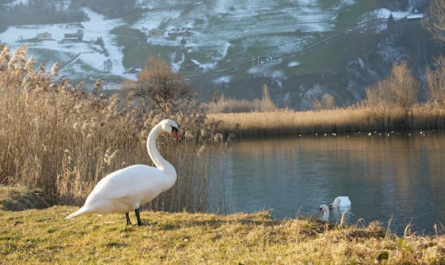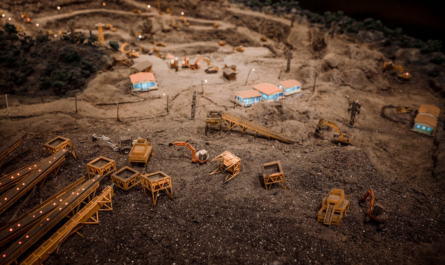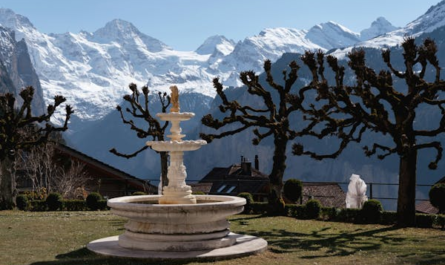Alpbach, a attractive village nestled in the Tyrolean Alps of Austria, is famous not only for its stunning landscapes but also for its rich cultural heritage. This article delves into the unique aspects that make Alpbach a standout destination, exploring its historical significance, architectural charm, local traditions, and the vibrant community that thrives in this alpine haven. With its breathtaking scenery and deep-rooted customs, Alpbach offers friends an enriching experience that goes beyond mere sightseeing.
The Historical Significance of Alpbach
Alpbach’s history dates back several centuries, with its first documented mention occurring in 1150. The village has evolved from a small agricultural community into a prominent cultural hub, particularly known for its commitment to education and innovation. The establishment of the European Forum Alpbach in 1945 marked a significant turning point, transforming the village into a center for intellectual discourse and cultural exchange. This annual event attracts scholars, politicians, and thought leaders from around the globe, fostering discussions on pressing global issues.
Architectural Heritage
One of the most striking features of Alpbach is its architectural style, characterized by traditional wooden chalets adorned with intricate carvings and vibrant flower boxes. The village has maintained strict building regulations to preserve its unique aesthetic, ensuring that new constructions harmonize with the historical landscape. The iconic church of Alpbach, with its stunning steeple and beautifully crafted interior, serves as a focal point for both locals and visitors alike.
The Role of Local Traditions
Alpbach’s cultural heritage is deeply intertwined with its local traditions, many of which have been passed down through generations. The village hosts numerous festivals throughout the year, celebrating everything from traditional Tyrolean music to culinary delights. The Alpbach Music Festival, for instance, showcases local talent and invites musicians from various genres, creating a vibrant atmosphere that resonates with the community’s love for the arts.
The Influence of Nature
The breathtaking natural surroundings of Alpbach play a crucial role in shaping its cultural identity. The majestic mountains, lush meadows, and pristine rivers not only provide a stunning backdrop but also influence the lifestyle and traditions of the villagers. Outdoor activities such as hiking, skiing, and mountain biking are integral to the community, fostering a deep connection with nature that is reflected in their customs and celebrations.
Community and Social Life
At the heart of Alpbach’s charm is its close-knit community. The residents take pride in their heritage and actively participate in preserving their cultural identity. Local associations and clubs play a vital role in organizing events, workshops, and educational programs that engage both residents and visitors. This sense of community is palpable during festivals, where locals come together to celebrate their traditions, showcasing their crafts, music, and culinary skills.
Culinary Heritage
Alpbach’s culinary scene is a delightful reflection of its cultural heritage. Traditional Tyrolean dishes, such as speck platter, knödel (dumplings), and strudel, are staples in local restaurants and homes. The village also hosts farmers’ markets, where visitors can sample fresh produce, artisanal cheeses, and homemade pastries. These culinary experiences not only satisfy the palate but also provide insight into the region’s agricultural practices and seasonal rhythms.
Arts and Crafts
The artistic spirit of Alpbach thrives in its vibrant arts and crafts scene, where tradition and creativity merge seamlessly. Local artisans, deeply inspired by the majestic alpine landscape, craft exquisite handmade products, including intricately carved wooden sculptures, handwoven textiles, and traditional ceramics. These time-honored skills are passed down through generations, preserving the village’s rich cultural heritage.
Visitors can immerse themselves in this artistic world through interactive workshops, live demonstrations, and seasonal exhibitions, gaining hands-on experience in age-old techniques. Whether exploring charming artisan boutiques or attending craft fairs, travelers can take home a piece of Alpbach’s heritage, making their visit not just a journey, but an intimate connection to the region’s creative soul.
Sustainable Tourism in Alpbach
As a destination that values its cultural heritage, Alpbach is committed to sustainable tourism practices. The village promotes eco-friendly initiatives, encouraging visitors to explore the area responsibly. Hiking trails, for instance, are well-marked and maintained, allowing guests to immerse themselves in nature while minimizing their environmental impact. Additionally, local businesses prioritize sustainability, sourcing ingredients from nearby farms and using renewable energy sources.
The Importance of Preservation
Preserving Alpbach’s cultural heritage is a priority for both residents and local authorities. Efforts are made to protect historical sites, promote traditional crafts, and educate future generations about their roots. Schools in the area incorporate local history and culture into their curricula, ensuring that children grow up with a strong sense of identity and pride in their heritage.
During the 14th and 15th centuries, Alpbach, like many Alpine villages, experienced periods of economic and cultural development, particularly as trade routes passed through the region. The village’s location in the mountains made it an ideal stop for travelers and merchants. However, its remote setting also meant that Alpbach was often isolated from the larger centers of political power and influence in the region.
In the 19th century, with the rise of tourism in the Alps, Alpbach began to attract visitors, particularly those seeking the beauty of nature and the tranquility of the mountain setting. As tourism grew, the village’s infrastructure and economy adapted to serve this new demand, all while maintaining its historical charm, which included the traditional wooden chalets and buildings that still define the village’s aesthetic.
The most transformative event in Alpbach’s modern history came after World War II. In 1945, the Austrian philosopher and politician, Otto Molden, established the “Alpbach Forum” with the aim of fostering intellectual dialogue in the post-war era. This event quickly gained international prominence, attracting scholars, policymakers, and intellectuals from across Europe and the world to discuss pressing global issues, from politics to technology and philosophy. The Alpbach Forum became a cornerstone of the village’s identity, transforming it from a quiet Alpine retreat into a hub for global intellectual and cultural exchange.
The Forum, which continues to take place annually, has grown over time to become one of Europe’s most prestigious conferences, focusing on topics such as science, technology, economics, and social issues. The beauty of Alpbach, with its preserved traditional architecture, juxtaposed with cutting-edge intellectual discourse, creates a unique atmosphere that reflects the village’s evolution—from humble beginnings to becoming a significant center for global thought.
Today, Alpbach remains a place where the past and present blend seamlessly, with its rich history still visible in its buildings and traditions, while its forward-thinking spirit continues to be shaped by the intellectual exchanges that take place in the heart of the village. The event has not only helped Alpbach build its reputation as a meeting place for the world’s thought leaders but also solidified its position as a symbol of Austria’s resilience and commitment to cultural and intellectual development.
Alpbach stands out as a beacon of cultural heritage in the heart of the Alps, offering a unique blend of history, tradition, and natural beauty. Its commitment to preserving its architectural charm, local customs, and community spirit makes it a remarkable destination for travelers seeking an authentic alpine experience. Whether exploring the village’s historical sites, indulging in traditional cuisine, or participating in local festivals, visitors to Alpbach are sure to leave with a profound appreciation for the rich cultural tapestry that defines this enchanting alpine village.
In a world that often prioritizes modernization and rapid development, Alpbach, Austria stands as a timeless gem, preserving its rich cultural heritage while embracing progress. Nestled in the heart of the Austrian Alps, this picturesque village is renowned for its traditional wooden architecture, breathtaking alpine landscapes, and strong sense of community spirit.
Alpbach seamlessly blends old-world charm with sustainable tourism, ensuring that its pristine natural beauty and historical traditions remain intact for future generations. Visitors can experience authentic Tyrolean hospitality, explore scenic hiking trails, and immerse themselves in the village’s vibrant local culture. As Alpbach continues to evolve, it remains a shining example of how tradition and innovation can coexist harmoniously, offering travelers a unique escape into a world where heritage, nature, and progress unite.





